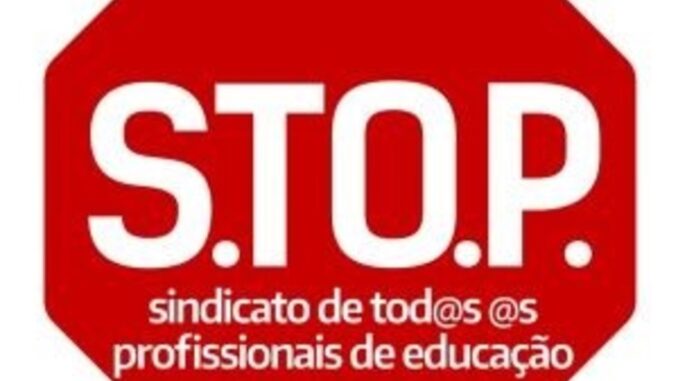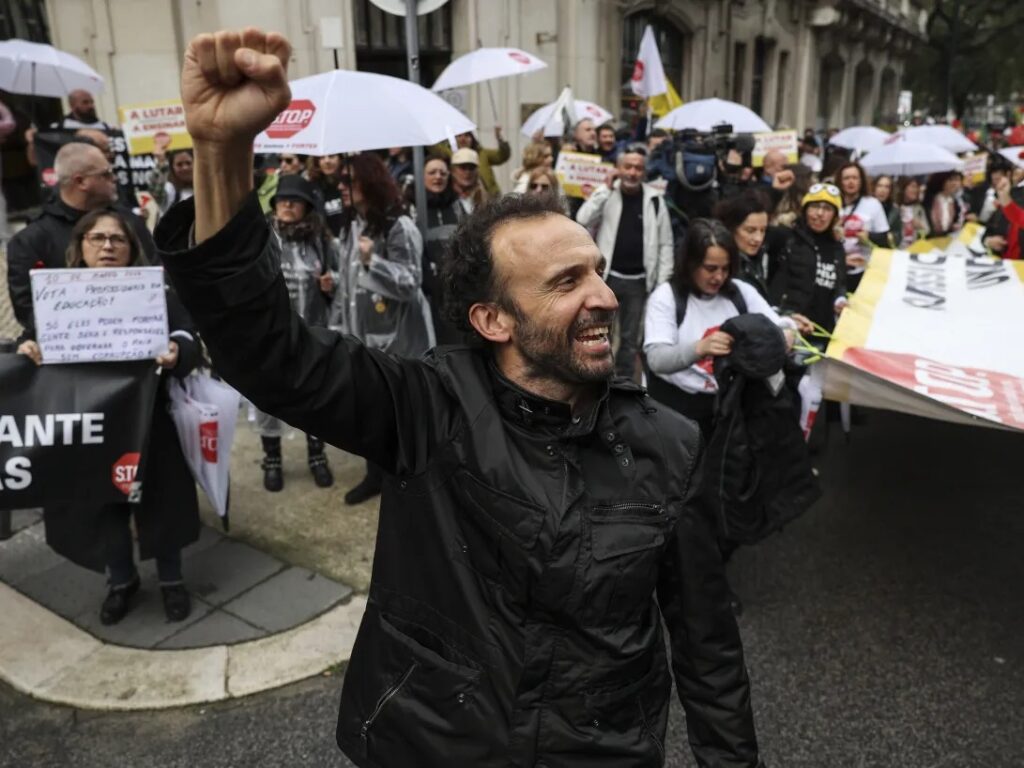
We interviewed André Pestana, coordinator of the Union of All the Professionals of Education (S.T.O.P.), who told us the origin, the characteristics and the challenges of the new combative Union in which the grassroots decide everything democratically. It is one of the most advanced experiences of a sector of the European working class.
Interview by Flor Salgueiro for the ISL
A few days before the elections to be held on March 10, the teachers of S.TO.P. took to the streets despite the adverse weather. What message did they want to give and how do you evaluate the activity carried out?
Despite the rain and the intense wind, the Education Professionals made it clear to the future government that they will not stop fighting until there is a serious investment in Public Schools and in the recognition of all Education Professionals.
What is S.TO.P.? When and in what political and social context was it born?
S.TO.P. emerged in early 2018 during the administration of the Socialist Party supported by the Communist Party and the Leftist Bloc. During this government, the commitments of the traditional trade union leadership to party interests and not to the interests of those they were supposed to represent became even more evident. However, S.TO.P., since its inception, has shown that it is possible for trade unionism to mobilize the workers again and, particularly, that the struggles are decided democratically by the workers themselves and not by other types of interests (private, partisan or other).
In 2023 S.TO.P. has led historic demonstrations. Can you tell us what they were like?
S.TO.P., which is by far the youngest union, managed to organize the biggest struggles for education in Portugal, for example, with around 100,000 people on January 14 and also on January 28, 2023, because we trust in education professionals. That is why we encourage the creation of hundreds of democratically elected union and strike committees in schools across the country and hold regular national meetings (in person and online) of these school representatives. On strike committees we accept Education Professionals unionized in other unions or non-unionized, the criterion is to be democratically elected by their school colleagues.
What was the reaction of the government authorities?
As this unprecedented struggle of education professionals (driven by S.TO.P.) influenced other professional sectors in Portugal and even other education professionals in Europe (e.g. in the UK), the government’s response was intense with smear campaigns, misinformation and also illegal minimum services against strikes.
How does the union bureaucracy position itself in the face of S.TO.P.?
Since the beginning of S.TO.P. in 2018, the union bureaucracy has been trying to destroy us, with permanent slander and attacks.
What is territorial extension does the Union have?
Our organization is centered in all continental Portugal and especially in the coastal areas where there are more schools and where the struggles took place with greater intensity.
What union model does S.TO.P. practice?
Our model is to try to unite all education professionals in the struggle (we are the only ones in Portugal to do so effectively) and that the struggles are decided democratically by the workers themselves, as I explained in one of the previous answers. We are also committed to never sign any important agreement with the government without first having the democratic support of those who work in the schools. In Portugal we are the only union in the Education area that has finite consecutive mandates for its leaders. In other words, here there will be no eternal leaders and we know that the defeats and victories of those who work in the schools will also be the defeats and victories of our leaders.
Do you coordinate with other labor sectors in struggle?
S.TO.P. has held meetings with other workers in struggle, particularly in the public services in Portugal, and we have also been present in solidarity in demonstrations of other professional sectors (for example, doctors, journalists and security forces).
What are the next steps and challenges for teachers and the Union?
The challenge we have, both for teachers and non-teaching workers in schools, is the configuration of the next Parliament (and consequently of the Government) after the national elections on March 10. Given this outcome, we will find out whether we will continue to have a slow death of School and public services or we will have an even more liberal Government that will try to provoke a faster death of the School and all the essential public services for the population. Then we will have to collectively analyze the steps to be taken, including the need to at least begin to unite all public sector workers in the country in an unprecedented way, in a great struggle for public services.









